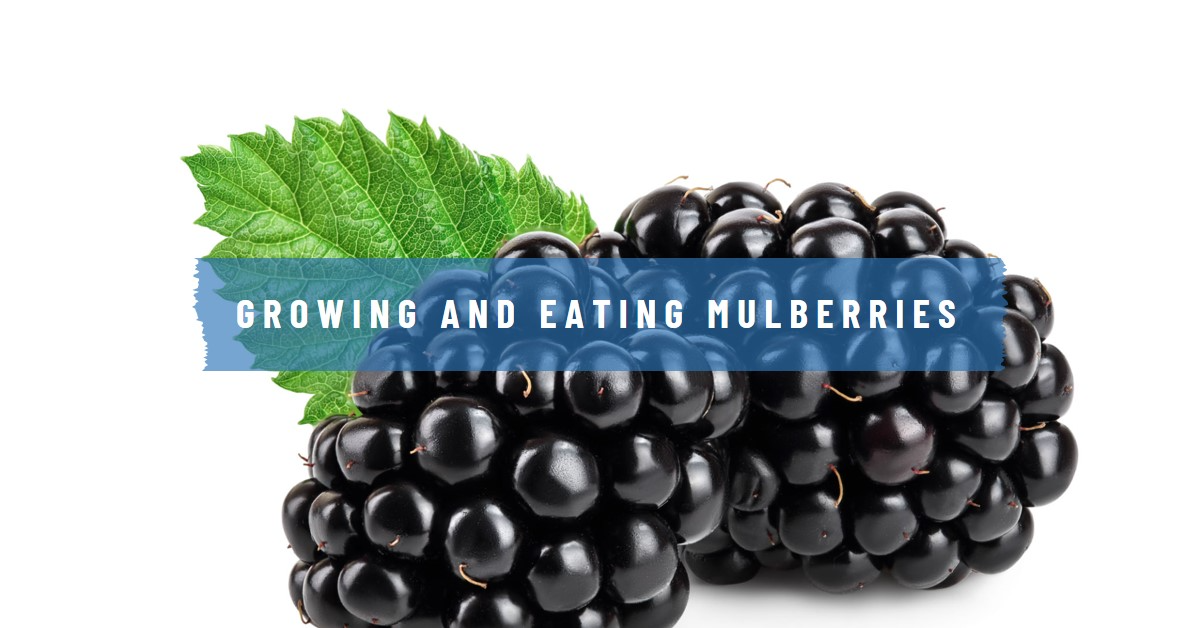Let’s explore the captivating world of Mulberry, a fast-growing and versatile tree known for its attractive appearance and delicious fruits. With its pendulous branches, veined green leaves, and an array of red, purple, and black cylindrical fruits, Mulberry (Morus nigra) is a remarkable addition to any organic garden. Join us as we uncover the diverse uses, nutritional benefits, and growing details of this enchanting tree.
Appearance and Description:
Mulberry is a deciduous tree that grows rapidly, forming an appealing domed shape. It features smaller branches that hang down gracefully and exhibits veined green leaves with downy undersides, creating an eye-catching display. The tree can reach an impressive height and width of up to 10 meters, providing ample shade and an ornamental presence. Mulberry fruits are cylindrical and have a rubbery texture, displaying vibrant hues of red, purple, and black.
Versatile Uses and Functions:
One of the fascinating aspects of Mulberry is its versatility in various gardening applications. By planting Mulberries closely together and regularly pruning them, you can create a fruiting hedge, adding both beauty and functionality to your garden. Additionally, Mulberry trees can be cultivated in large containers, making them suitable for urban gardens or limited spaces. Their expansive canopy makes them an ideal shade tree over chicken coops, as they contribute to nitrogen usage. The deciduous leaves of Mulberry trees also serve as excellent mulch, providing natural insulation and enriching the soil with organic matter. Pruning the old growth and allowing it to decompose (“chop and drop”) further promotes a healthy ecosystem. Whether you seek an edible delight, ornamental beauty, or sustainable gardening practices, Mulberry trees have it all.
Nutritional Value:
Mulberries offer not only delectable flavor but also an array of nutritional benefits. They are an excellent source of iron, which is a rare feature among berries. In addition, Mulberries are rich in minerals like potassium, manganese, and magnesium. They are packed with vitamins from the B-complex group, including vitamin B-6, niacin, riboflavin, and folic acid. With their nutrient-dense profile, Mulberries contribute to a well-rounded and healthy diet.
Growing Details and Care:
Harvesting Mulberries typically takes place from November to January. Under optimal growing conditions, a small harvest can be expected within the first year. Since Mulberries fruit on new season growth, it’s advisable to prune the tree after the harvest to encourage new shoots for the next year’s crop. Keep in mind that fallen Mulberries can stain surfaces, so positioning the tree over a lawn is recommended. Mulberries thrive in deep, fertile, well-draining loam soil with a neutral pH. Regular mulching, done a couple of times per year, helps retain moisture and nutrients in the soil. While Mulberries prefer full sun, they exhibit reasonable drought tolerance once established, making them a resilient addition to your garden.
Culinary Delights:
Freshly picked Mulberries straight from the tree make a delightful and nutritious snack. They have a sweet yet tart taste that is best enjoyed when fully ripe, as the fruit does not continue to ripen off the tree. Incorporate Mulberries into fruit salads, smoothies, or use them as a flavorful ingredient in jams and baked goods. Their versatility extends to baking, where they add a burst of color and flavor to cakes, pies, and muffins.
Graceful Appearance, Abundant Harvests
Mulberry trees (Morus nigra) enchant with their graceful appearance, abundant harvests, and multiple uses in organic gardens. Whether you appreciate their ornamental charm, seek the nutritional benefits of their fruits, or desire a sustainable gardening practice, Mulberries are an excellent choice. With proper care and cultivation, you can enjoy the beauty of these trees while relishing their delectable and versatile fruits. Join us at OrganicMotion as we celebrate the wonders of Mulberry and empower you to create a thriving, organic garden. Happy gardening and culinary adventures!
